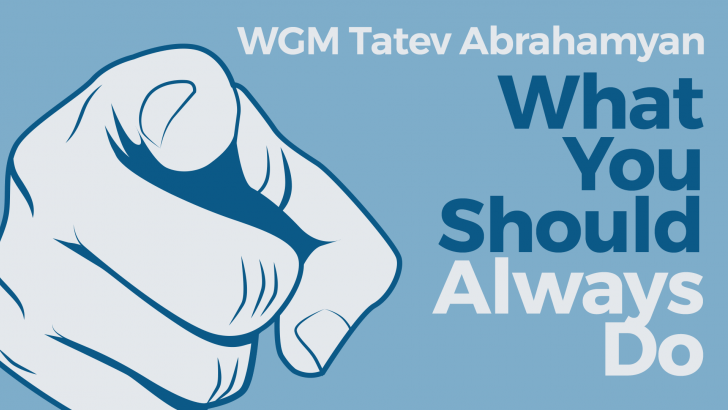What You Should Always Do
Learn the tricks that Masters use each game!
Have you ever wondered how masters and grandmasters got where they are now? Have you ever wondered why masters know what to do? Then this course is for you! Follow along with WGM Tatev Abrahamyan as she explains some of the best practices that top players follow. These practical tips can help you win and get to the next level. Start playing like a master today!
Here is what you will learn:
- Learn how to anticipate your opponent's ideas!
- Learn how to handle your clock!
- Learn when to sacrifice!
- Learn calculation and planning techniques!
- Learn how to get out of trouble in a rough game!
